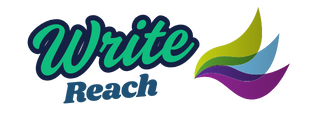In today’s fast-paced world, the ability to direct your own learning has become more crucial than ever. Whether you’re a professional seeking career advancement or an individual striving for personal growth, understanding how to learn independently can transform your life. Learning Your Way: Strategies for Self-Directed Growth explores practical approaches to mastering this essential skill.
Understanding Self-Directed Learning
Self-directed learning is the process of taking initiative and responsibility for your own learning journey. Unlike traditional learning environments, it requires you to set goals, identify resources, and monitor your progress. The core idea behind Learning Your Way: Strategies for Self-Directed Growth is to empower individuals to become proactive learners, capable of adapting to changing circumstances and acquiring knowledge efficiently.
Setting Clear Goals
The first step in self-directed growth is defining what you want to achieve. Ask yourself:
- What skills or knowledge do I want to gain?
- Why are these goals important to me?
- What timeframe is realistic for achieving them?
By setting clear, measurable goals, you create a roadmap for your learning journey. This structure is vital for staying motivated and avoiding the pitfalls of aimless study.
Choosing the Right Resources
Once goals are set, the next step is selecting resources that align with your objectives. Books, online courses, podcasts, and mentorships can all contribute to your learning. It’s essential to evaluate sources for credibility and relevance. Learning Your Way: Strategies for Self-Directed Growth emphasizes tailoring resources to your preferred learning style, whether visual, auditory, or hands-on.
Developing a Routine
Consistency is key to long-term success. Establishing a daily or weekly learning routine helps integrate self-directed learning into your life. Scheduling dedicated time for study, reflection, and practice ensures steady progress and reinforces the habit of independent learning.
Reflecting and Adapting
Finally, self-directed learning is an iterative process. Regularly reflecting on your progress allows you to identify strengths and areas for improvement. Adjusting your strategies based on feedback and outcomes ensures continuous growth. This approach encapsulates the essence of Learning Your Way: Strategies for Self-Directed Growth—learning is most effective when it evolves alongside you.
Conclusion
Mastering the art of self-directed learning opens doors to personal and professional growth. By understanding your goals, choosing the right resources, maintaining a consistent routine, and reflecting on your progress, you can truly take control of your development. Embracing Learning Your Way: Strategies for Self-Directed Growth not only enhances knowledge acquisition but also cultivates lifelong learning habits essential for success in today’s dynamic world.


